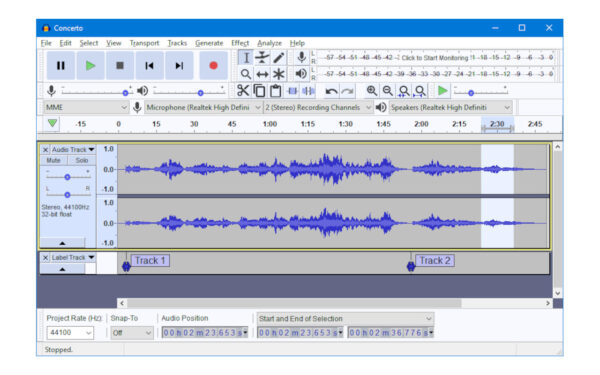One of the largest assets of open source software is naturally open, which brings other benefits such as freedom of use, safety by review, flexibility and more. It is especially thanks to the open source licenses of the sources of these programs, but from time to time, a person aims and tries to make changes that affect the community of users and developers. Sometimes these changes can even be illegal. Such seem to be the destiny that has the audacity of audacity, one of the most popular software in the open source world that is now in a very invasive confidentiality policy.
The Brouhaha started a few months ago when the audacity was bought by the muse group, the company behind an equally popular music software like musescore, which is also open source and an ultimate guitar. Until now, the audacity remains open source (and can not really be modified in proprietary software in its current form), but that does not mean that the MUSE group can not make new damaged changes. These changes are in the form of the new privacy policy that has just updated a few days ago, a policy that allows it to collect user data.
As an online basic functionality office application, Audacity never needed “telephoning home” in the first place. Now, the privacy policy indicates that the new company collects data and does it in a way that is both excessive and vague, probably by design. For example, it is indicated that it collects the data necessary for the application of the law but does not specify which type of data is collected.
There are also questions about data storage, located in servers in the United States, Russia and the European Economic Zone. The IP addresses, for example, are stored identifably for a day before being minced, then stored in servers for one year. The new policy also disables people under 13 to use the software, which, as Post Foss stresses, is a violation of the GPL license that audacity uses.
The open source community has been naturally irritated by these changes. Fortunately, audacity is open source software, and it will probably be taken by the community and forced in a different direction, perhaps with a different name. This will leave the MUSE group to develop its audacity instead of exploiting (and operate) the difficult work of the open source community.



